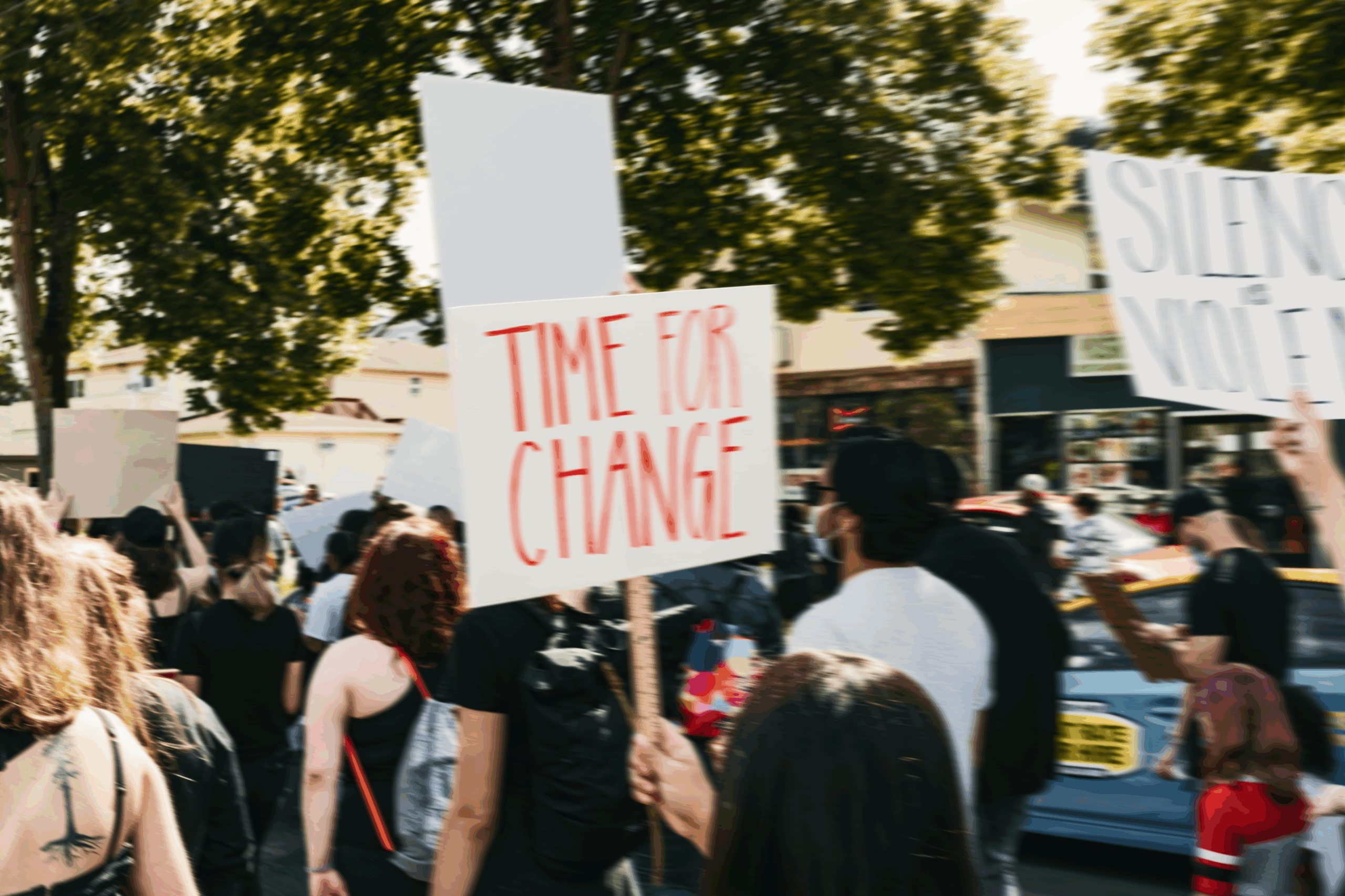Continue Reading
Biggest Finance Newsletter for Women
Join 200,000 other people interested in money, power, culture, and class.
Subscribe
A few months ago, a 93-year-old billionaire donated $1 billion of her wealth to a medical school to make it free for its students…forever.
It might seem counterintuitive that a billionaire making medical school free in perpetuity could inspire conversation about wealth limits, but in her piece for The Atlantic, columnist Christine Emba notes that it’s “staggering that a decision as society-shaping as dissolving the debt load of thousands of potential doctors could depend on the whims of one individual, and that one person has the resources to implement such a policy on their own, needing no one else’s input or approval.”
I find this thought exercise fascinating. Indulge me, will you?
Emba’s broader discussion entertains a viewpoint called “limitarianism,” which suggests imposing limits on individual wealth. This is, of course, a political and financial lightning rod (have you already scrolled past the rest of this essay to punch Reply and fire off a retort at the mere mention?!).
But it’s one of the most engrossing questions we face as a highly sophisticated society: How much is too much? I think it’s fair to say that the primary argument for the “no limits” status quo is that by capping wealth, you cap incentive, and without incentive, people will stop innovating—that there is some indirect societal value that is created by allowing individuals to personally accumulate hundreds of billions of dollars.
But let’s assume for a moment that there is some limit beyond which the scales tip, the point at which it’d be better for society as a whole if no one individual continued to become exponentially richer, but if that money were used to, say, rebuild decaying public infrastructure or invest in the development of new technology (like the internet!) or make higher education free for everyone.
>
“Presumably there is some point beyond which society begins deteriorating from inequality; when the net effect becomes negative.”
Both of Emba’s “beside the point” concessions in her piece—that the value of the limit itself is “arbitrary” and “context-dependent,” not to mention nearly impossible to enforce in our current fiscal system—actually seem to pose the most interesting philosophical challenges of all.
How would we even begin to identify such a threshold? It reminds me a little of the fabled Google interview questions (how many gumballs can you fit inside a school bus?). Maybe it’s less about the number itself, and more about the reasoning we use for getting there. Presumably there is some point beyond which society begins deteriorating from inequality; when the net effect becomes negative (one could argue we’re already there, and have been for quite some time).
Far from being beside the point, this question is central. Where does the accumulating weight of society’s needs eclipse one’s individual right to be incentivized by still more personal wealth accumulation? Is it better to allow a civilization to topple, for an exploited underclass to rise up and overthrow its oligarchic clown state government, than for a centimillionaire to get cut off after their first hundred million?
The question of incentive, by the way, intrigues me in and of itself: Even the staunchest defenders of limit-free wealth accumulation will probably concede that there’s such a thing as diminishing marginal returns. Money has long been immaterial to people like Jeff Bezos. I find it dubious that capping the personal wealth of these masters-of-the-universe types would mean they’d hang it up and stop working on drone shipping. Consider this data visualization that compares his $185 billion to a measly million and report back. It’s almost inconceivable to me that his next incremental dollar could meaningfully incentivize him, but maybe I’m naïve.
Then there’s the fact that the vast majority of our society would never even come close to breaching such a proposed limit (90% of American households have less than $1.5 million in wealth, most far less; the legal limit tossed out in the piece is more than $10 million, an amount that would land you among the richest 1%). For that reason, it seems to me this issue receives a defense disproportionate in both size and intensity to the number of people who would be impacted, like a group of dudes who clock in at 5’8” vehemently arguing about instituting a height limit of 7’ in the NBA.
Because of my profession, I’m tempted to tap financial planning’s 4% rule as a grounding force. If my lifestyle costs $160,000 per year, my personal maximum is probably somewhere around $4 million. I can live my ideal life on $4 million in perpetuity, so accumulating, say, $10 million would represent more than I could reasonably need, as well as (probably) an indication that I’ve not been very generous. But this rule doesn’t quite work without raising additional questions: You could argue that spending $160,000 per year is also wasteful. Where do choices morph from reasonable to excessive? This feels entirely subjective, and while there’s probably a creative equation that would triangulate the point at which we’ve allowed Katie to stockpile one too many pairs of designer shoes, my imagination fails me.
>
“In a sense, it takes the ‘pie getting bigger’ metaphor that’s often used to justify extreme wealth accumulation and enforces it directly.”
There are also some creative solutions I find fascinating, like tying the ceiling to the floor. For example, “The richest person in a given society is only allowed to have X times as much wealth as the poorest.” In other words, if you want to get richer, it can’t be at the expense of those among us with the very least. Currently, the richest people in the US are roughly 1,000,000x richer than the median American ($200 billion to approximately $193,000). It’s the sacred pizza party rule as economic policy: Nobody gets thirds until everyone has their first. (Read: I can’t buy my fifth beach house if there are still tens of thousands of people sleeping in their cars.)
In a sense, it takes the “pie getting bigger” metaphor that’s often used to justify extreme wealth accumulation and enforces it directly: Sure, you can have a bigger slice…but first you must actually create a larger pie.
The second- and third-order effects of such an arrangement might yield some desirable results. If I’m a business owner running a successful firm and I know my own personal wealth accumulation can’t surpass a certain point, I’m more incentivized to spend that money in other ways. Maybe I pay my workforce higher wages or I do a shared ownership model or I invest more heavily in R&D, rather than buying another boat. (This is where the question of incentive arises again: The limit would have to be high enough to incentivize entrepreneurs to take the risk in the first place.)
While we’re at it, I’ll tell you what argument I don’t find compelling: That the ultra-wealthy’s adept deployment of loopholes is a reason to ignore the question entirely. We don’t say, “Why ban drugs? There’s no point in making a substance that’s harmful to society illegal, because drug dealers will just find other ways to make and sell them.” We know that making addictive substances legal and easy to obtain leads to more abuse and death (see also: the tragic opioid crisis) and that introducing friction to the process of obtaining anything tends to blunt its effects. (I’ll admit this analogy isn’t perfect. Just making drugs illegal doesn’t really solve the problem, so much as it’s a good faith effort to contain it and create disincentives.) I also don’t find the slippery slope argument to be all that persuasive. “If we set the limit at $10 million, what’s next? $5 million?” I mean, maybe—but we don’t do away with seatbelt laws because we’re afraid they’re going to start making us wear Michelin man suits.
There’s a part of me that wonders if people wouldn’t actually be happier if there were some sort of limit. The other night before bed I was scrolling the r/fatFIRE subreddit, an anonymous watering hole for (supposedly) ultra-high net worth individuals interested in sharing their innermost turmoil with one another. The average post sounds something like this: “I’m 45 and I have $30 million. Is that enough? I’m not sure if I should grind it out for a few more years or call it a day. Oh, yeah, our annual spend is about $200,000. Two kids. Paid-off house.”
>
“If you couldn’t go out and accumulate more, would you actually feel more peace and freedom, than if faced with the daunting prospect of endless ascension?”
While I’m not totally convinced these aren’t a bunch of Robinhood bros cosplaying Conflicted Rich People, there are an astounding number of posters who have accumulated more money than any one person could ever spend who seem existentially miserable in their quest for more. What if that decision were settled for us?
In other words, if you couldn’t go out and accumulate more, would you actually feel more peace and freedom, than if faced with the daunting prospect of endless ascension? (I don’t know.) It reminds me of the paradox of choice—when you have too many options (or, in our case, when you have an infinite amount of money to chase), you’re actually more likely to feel dissatisfied.
That’s to say nothing of the visible results of such an arrangement. I remember visiting San Francisco in 2016 and observing a person sleeping in the doorway of Louis Vuitton. A shopper toting several enormous orange shopping bags no doubt full of thousands of dollars’ worth of leather goods swung open the door and physically stepped over the sleeping person on their way out. It’s hard to imagine a version of the United States without poverty, but I find it hard to believe our collective psyche isn’t negatively affected by so much conspicuous suffering.
Finally, there’s the question of enforcement. Even if you somehow managed to do away with offshore bank accounts and the type of asset protection that currently allows people to shield their wealth from governing bodies, there isn’t currently—to my amateur knowledge—any way for a government to know the exact net worths of its citizens. Most of the data we see in studies (like those by the Federal Reserve) is self-reported via surveys. Unlike income, which must be reported every year, wealth is a little more nebulous. Theoretically it could be pieced together via financial statements or loan applications, but at scale, this would seem an impossible effort. (Currently, the only data I could find from the IRS that estimates personal wealth does so using a small selection of estate tax returns every three years when people die, not a live estimate of the entire population.)
All this to say, I’m curious: Is there a level of wealth attainment that you would personally begin to feel funny about? A level beyond which you’d feel as though you crossed some ethical line? I find that this microcosmic question generates even more captivating answers (and justifications!) than the broadest interpretations of a societal wealth limit.
>
“I find that this microcosmic question generates even more captivating answers (and justifications!) than the broadest interpretations of a societal wealth limit.”
After all, the idea that “there are no ethical billionaires”—which basically means there’s no way to become a billionaire without screwing over a bunch of people along the way, either by acts of commission (like wage theft) or omission (like a serial lack of philanthropy)—is more or less conventional wisdom in the Zillennial comment sections I frequent.
But it’s a phrase that’s easy to wield from the moral high ground of being Decidedly Not Billionaires. None of us expect to become billionaires, so we maintain a safe distance from the accusation. So, the natural question follows: What makes centimillionaires any more ethical? Or even just plain old multimillionaires? So debonair! The lower the limit, the itchier we become. (Or, if we’re talking about Rihanna or Taylor Swift, downright apologist—I mean, what’s a billion dollars these days? I ask, upper lip sweating, shoving my Fenty lip gloss and Eras Tour shirt out of frame. With inflation these days, a billion ain’t what it used to be!)
Like I said, it makes for an interesting thought experiment.
April 15, 2024
Paragraph
Looking for something?
Search all how-to, essays, and podcast episodes.
Explore
While I love diving into investing- and tax law-related data, I am not a financial professional. This is not financial advice, investing advice, or tax advice. The information on this website is for informational and recreational purposes only. Investment products discussed (ETFs, index funds, etc.) are for illustrative purposes only. It is not a recommendation to buy, sell, or otherwise transact in any of the products mentioned. Do your own due diligence. Past performance does not guarantee future returns.
Money with Katie, LLC.
Terms & Conditions | Privacy Policy
This Site Was Built by Brand Good Time



